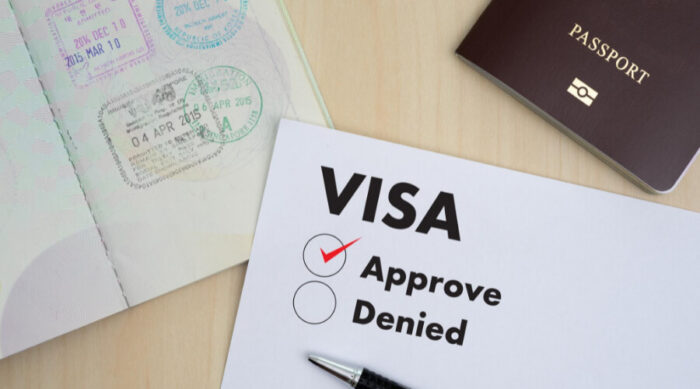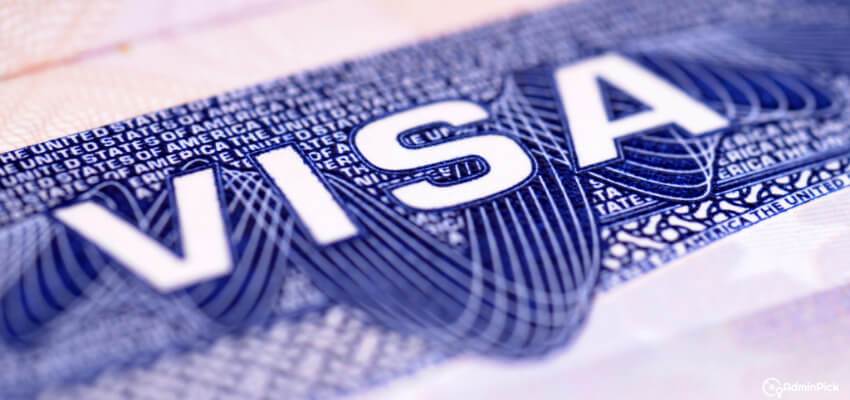If visa restrictions are a problem for you, visa alternatives may offer some relief. These visa alternatives allow those with skills and qualifications to work in another country while waiting to be granted the Visa they seek. Here, we will explore 10 of the best pass alternative options available!
Here Are The Ten Best Visa Alternatives

The first visa alternative is the Visa. An eVisa allows a person to enter a country and receive their pass once they have arrived at their destination. There are so many types of Visa that can be granted through an application, but if you need your Visa before leaving for another country, this may not be the best option. This type of visa only applies to citizens from countries who require all travelers to apply in advance. It might also prove difficult for those with limited access or mobility as some online services charge too much money per transaction when purchasing currency online, which could make accessing funds expensive.
Another popular visa alternative is being given asylum. Asylum is a visa that can be obtained if the applicant has suffered from persecution in their home country or are a member of a minority group and need protection. If someone enters another country under these circumstances, they may be granted asylum status and will not have to leave until the conditions for this visa change.
The third visa alternative could be found through working as an au pair. An au pair visa grants people who offer childcare services in other countries permission to work in exchange for board and room while waiting for their visa application process to continue. This type of Visa takes time but often allows those who would like to travel abroad temporarily without leaving family behind access more opportunities than one might otherwise receive due to being restricted by specific visas requirements, which cannot always account for individual circumstances.
The fourth visa alternative is through family reunification. This Visa allows people to enter another country and establish familial ties to stay there legally based on being related to someone who lives in that other country or has citizenship status. When this visa option is used, it affords those waiting for their visa application process more time without worrying about an uncertain future as they are living with relatives and have to access food, shelter, and education which would not otherwise be available if left undocumented–a fate many people from developing countries around the world face when struggling with visas restrictions at home.
The fifth visa alternative might provide you relief by coming into contact with your host’s culture while still being able to work abroad. This visa type is called a cultural visa. It affords travelers the ability to enter another country without needing permission from that country’s government, as they stay for reasons other than employment–such as visiting family or studying in the host nation.
The sixth visa alternative may be through contracting with an international company. Suppose you have skills that would best suit some of their needs or requirements. In that case, this could offer visa relief for those who need more time while waiting on future opportunities due to restrictions at home which keep them from being granted visas when needed most because their skill set does not match what any given agency requires currently. International companies often hire these individuals anyway but cannot do so if there are no available visas left open.
The seventh visa alternative is through working abroad. If you have skills needed in another country, this Visa maybe your best option. It allows people to work for international companies without needing any access to restrict them from gaining employment elsewhere while waiting on their visa application process to continue.
The eighth visa alternative is applying for a refugee status claim and being granted asylum when they arrive at the destination where their request has been made. This visa type also permits those who enter under these circumstances to live freely within the borders of whichever nation they travel to until conditions change or if there are other reasons why someone needs to leave which arise–such as an illness or natural disaster. These visas can allow people to live their lives more fully when they are non-disabled and without limitations.
The ninth visa alternative is through applying for a student visa which will allow them to stay within the borders of another country on the basis that while working towards academic goals, they can also work or engage in other types of employment opportunities if desired–as some nationalities require permission from said agency before being granted this type of Visa but not others. Hence, it all depends on what your specific situation entails and where you would like to travel to.
Finally, there is the tenth visa alternative that might provide relief by coming into contact with one’s host culture while still working abroad. This visa type is called a cultural visa. It affords travelers the ability to enter another country without needing permission from that country’s government, as they stay for reasons other than employment–such as visiting family or studying in the host nation.
When visa restrictions are at their most stringent and visa applications, take months, if not years, before being granted, people who want to live abroad must be creative with visa alternatives such as these ten, which might provide relief when visas become limited.
How Does A Cultural Visa Work?
A cultural visa allows travelers into another country without needing permission from said country’s government–such as if someone wanted to study in the host nation while on vacation until their studies back home were completed or if an individual had family overseas that they wished to visit during their time off from school or work.
What Are Visa Alternatives Available?
There are many visa types for those who want to work or live abroad but might not be able to do so because of the current visa restrictions that they face at home. This is why people should explore this option, as it may provide relief when visas become limited due to how long and complicated some visa processes can take to get them approved.
How Does A Student Visa Work?
A student visa allows an individual to stay within the borders of another country because while working towards academic goals, they can also engage in other career opportunities if desired. As nationality requirements differ from one agency’s requirements, sometimes permission must be granted before being granted this visa type but not others.
How Does A Travel Visa Work?
A travel visa affords travelers from one country permission into another without requiring any paperwork–such as if someone wanted to study in the host nation while on vacation until their studies back home were completed or if an individual had family overseas that they wished to visit during their time off from school or work.
What Are Visa Alternatives Available?
There are many visa types for those who want to work or live abroad but might not be able to do so because of the current visa restrictions that they face at home. This is why people should explore this option, as it may provide relief when visas become limited due to how long and complicated some visa processes can take to get them approved.

